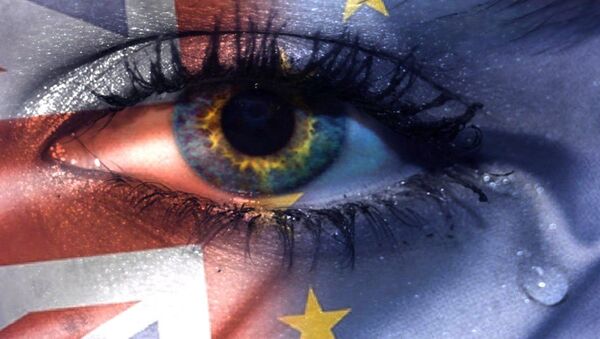In a tweet aimed at the lawmaker, the Russian Embassy joked that what Collins was effectively calling for is for the social media platforms to "Make up fake evidence or be sanctioned."
Make up fake evidence or be sanctioned. @DamianCollins, it’s 2017, not 1984! pic.twitter.com/TK8NphMeiY
— Russian Embassy, UK (@RussianEmbassy) 29 декабря 2017 г.
"@DamianCollins, it's 2017, not 1984!" the Embassy quipped, referring to the George Orwell novel warning of a dystopian future of total informational control.
This response was simply "extraordinary," according to the lawmaker.
Facebook had previously told Collins' committee that it had found £0.73 in spending by Russia's Internet Research Agency on Brexit-related ads. Twitter, meanwhile, said that it had identified only one account that funded by Russian sources promoting content related to Brexit, and that it belonged to RT. Google, also asked to provide input for the probe, said it found no evidence of Russian interference of any kind.
The Embassy's Friday tweet follows earlier complaints by UK journalist Hugo Rifkind, who accused the tech giants of holding British democracy "in contempt." To that remark, the Embassy responded that Rifkind was the one holding Britain's democracy in contempt, if he really believed that the 52% of voters who backed Brexit could "be bought for £0.73."
Nope, it’s @hugorifkind who holds British democracy in contempt by suggesting 52% voters can be bought for £0.73. What sort of rotten borough does he think he lives in? pic.twitter.com/z33Wl9iNQZ
— Russian Embassy, UK (@RussianEmbassy) 19 декабря 2017 г.


